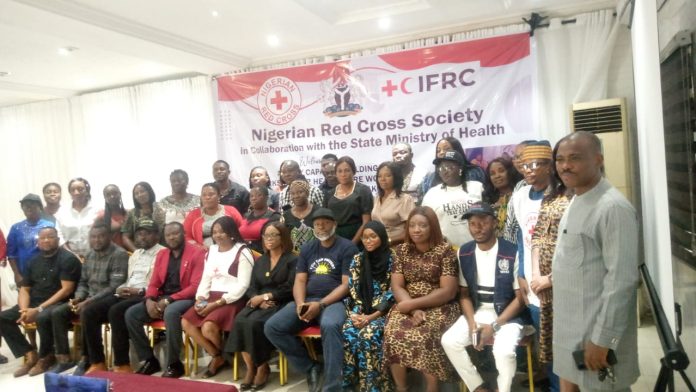…NRCS, DTSG Train Frontline Workers to Boost Surveillance
By Jumai Nwachukwu/Amayindi Yakubu
No fewer than 70 cases of Monkey pox (Mpox) have been reported across the 25 local government areas of Delta State.
This was revealed by the incident manager for the Nigeria Centre for Disease Control and Prevention (NCDC), Dr Odianosen Ehiakhamen during a three-day capacity building workshop organised by the Nigerian Red Cross Society (NRCS) in collaboration with the Delta State Ministry of Health.
Speaking at the event, Dr. Ehiakhamen noted that the purpose of the training is focused on improving knowledge and practical skills in surveillance, case detection, reporting, and infection prevention and control (IPC).
“We’re engaging surveillance officers across key LGAs on Mpox and diphtheria not just to teach, but to strengthen surveillance, case management, and infection prevention and control,” he said.
Drawing from national surveillance data, he warned that Mpox cases remain persistent and are now appearing among younger age groups.
“In just one week, we recorded 17 new confirmed cases. We are beginning to see infections in children, even neonates as young as 17 days old,” he said. “This shows changing viral dynamics and indicates that many community cases are still being missed.”
He also highlighted the need for better coordination between health facilities and local government surveillance teams.
“Sometimes, a clinician may manage a suspected case at a health facility without linking it to the local government surveillance system. That case could be missed entirely,” he cautioned.
He urged participants to close surveillance gaps, strengthen contact tracing, and address the stigma that discourages isolation and follow-up in communities.
Speaking on behalf of the Delta State Ministry of Health, Ms Nneka Imarhia reiterated that approximately 70 suspected cases have been reported across several LGAs, with cases concentrated in specific areas.
She commended the Federal Medical Centre (FMC), Asaba, for its critical role as one of the NCDC-accredited testing centres for Mpox in the state.
According to her, the FMC works closely with national Mpox coordination meetings and has a multidisciplinary team of infectious disease specialists and dermatologists who maintain a high index of suspicion, enabling prompt detection and confirmation of positive cases.
In her remarks, The Assistant Coordinator for Health and Care at the Nigerian Red Cross Society, Mr Bassey Imoke, explained that the training was initiated at the request of the Delta State Government and the NCDC to enhance the capacity of frontline workers in the face of ongoing outbreaks.
“Now that participants have a clearer understanding of the case definitions for diphtheria and Mpox, they can better recognise, report, and respond to suspected cases,” he said. “This will greatly strengthen community-level surveillance for early detection and investigation.”
Officials from the Nigerian Red Cross Society echoed the organisation’s commitment to supporting the Delta State Government and the Nigeria Centre for Disease Control and Prevention (NCDC) in preventing further spread of infectious diseases.
They stressed that empowering healthcare workers through continuous training is a key step in protecting communities and saving lives.
Throughout the workshop, experts repeatedly emphasised the importance of an integrated approach to managing multiple infectious diseases. “We are not just focusing on Mpox; we are looking at Mpox, diphtheria, and Lassa fever together. These must all be integrated into one coordinated response network,”
Participants expressed appreciation for the initiative, describing it as timely and impactful, especially in helping them identify, manage, and report suspected cases more effectively within their localities.


